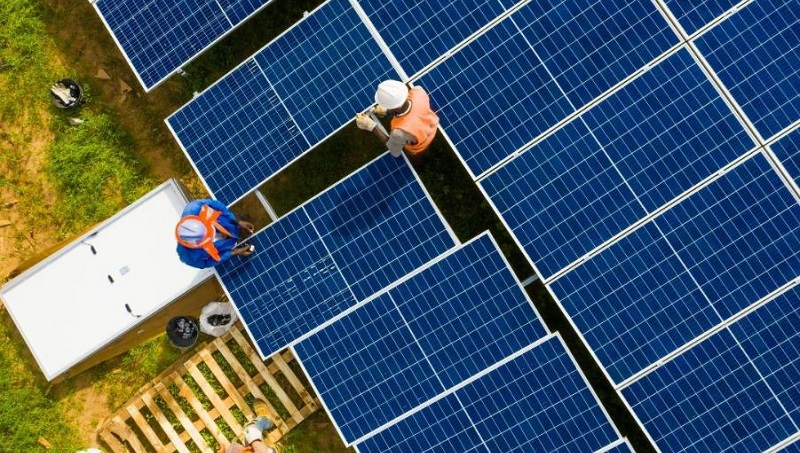A group of wealthy European nations and Canada have promised to contribute €2.5 billion ($2.7 billion) to help the West African nation of Senegal roll out renewables.
At the New Global Financing Pact Summit in Paris, Senegal’s president Macky Sall said the money would help his country get 40% of its electricity capacity from renewables by 2030, up from about 30% now.
Sall said the deal will help “increase our resilience” and “secure our energy system” while French president Emmauel Macron said it would boost economic development and access to electricity.
The governments who have said they will contribute funds are France, Germany, the UK, Canada and the European Union. The USA and Japan, which have backed similar deals, are not involved in this one.
Carbon credits touted as saviour of coal-to-clean energy deals
The deal is known as a Just Energy Transition Partnership (JETP). Similar multi-billion deals have been struck over the last two years with South Africa, Indonesia and Vietnam.
Unlike these bigger nations, Senegal is a tiny emitter and does not dig up or use much coal. It relies on fossil fuel imports from abroad and has one of the highest electricity prices in Africa.
Whereas negotiations with these countries have focused on closing coal plants and rolling out renewables, the deal Senegal will just focus on rolling out renewables.
Meeting the target will be a challenge, as the government aims to provide electricity to all its citizens by 2025. About a fifth of Senegal’s 16 million people do not have access to electricity. These are mainly poorer people in rural and island areas. Economic development is likely to bring more electricity use.
According to a joint statement between the Senegalese and wealthy governments, the money will be a mixture of grants, loans on better than market terms, investment guarantees, export credits and technical assistance.
A precise breakdown of these different categories was not made available. Neither was the breakdown of how much each governments is contributing.
The chair’s summary of the Paris talks at which the deal was announced said that it includes private investors as well as multilateral development banks and government funding.
Wealthy governnments have sought to hide these details in previous deals and contributors have later said their share was just the “amount they are willing to consider”.
A spokesperson for Canadian environment minister Steven Guilbeault told Climate Home that “Canada will work with partners and development banks to secure the agreed mobilisation of resources, and we recognize that additional funding might be needed during and beyond the JETP period [of three to five years]”.
The share of grants as opposed to loans and the terms of those loans has been a source of contention in previous deals, with the recipient countries pushing for grants so as to not add to their debt burden.
A source of contention with Senegal has been the role of gas. Most big Western countries have promised to stop funding fossil fuels abroad whereas Sall has publicly slammed them for that stance, telling a Chinese-organised conference that it comes at a “fatal cost” to developing countries.
In the joint statement, which does not mention any fossil fuels by name, Sall said Senegal would be “securing our energy system thanks to all our natural resources in line with the Paris Agreement”.
Ahead of elections, Argentina’s leaders wrap fossil fuels in the flag
The statement added that Senegal “with the effective support of” the rich countries would study “the most cost-effective low-carbon and climate resilient pathway” for energy.
A statement from Germany’s development ministry BMZ said Senegal wants to promote gas production but that would not be financed by this deal.
The money will be spent on renewable energy and the infrastructure to enable it, like electricity storage and measures to improve the stability of the electric grid.
A working group of Senegalese and rich country representatives will meet regularly to discuss the partnership, a technical secretariat will be set up within four months and an investment plan will be drawn up within a year.
This article was updated on 22 June to include the spokesperson for Steven Guillbeault’s comments. And to correct the headline which originally put the figure as $2.5bn not $2.7bn and €2.5bn. The article was updated again on 26 June to clarify that the share of renewable energies in installed capacity in Senegal’s electricity mix is around 30% – the article previously used a different measurement to say 10%. And the detail that private investors are included was added, following the release of the chair’s summary.
